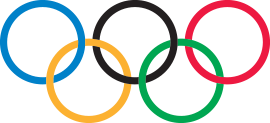Magdalena does not need any introduction to the fighting world. She has been one of the most outstanding IFMA Female Athletes and since then has become a TV celebrity in her native home of Sweden.
Magdalena has always been known as a model athlete and fits the gladiator role fantastically. All her Muaythai friends from around the world congratulate her on this outstanding achievement!
Go get them!
1. Looking back at your career, describe your biggest moment so far and what it has meant for you both personally and for your career.
Winning the IFMA world championship in 2007 was by far the greatest individual moment. Four fights in five days took their toll but I was very happy. Fighting professionally in huge venues in my home country are always very memorable moments. Also, as a result of my fighting career I was cast as “Athena” in the Swedish edition of the TV show Gladiators. So you could say that one career has led to another. J
2. What have you enjoyed the most?
In all it boils down to the friendships and camaraderie with all the guys in my gym (Vallentuna Boxing Camp) throughout the years, and of course with my trainers. They have seen me when I am strong, week, sad and happy and have always pushed, supported and believed in me. I couldn’t have done it without them.

3. What is the most important quality that an athlete can have?
I would say that a strong will leads to the necessary discipline and other qualities needed. I set my mind on becoming the best in the world and I did whatever it took to get there.
4. Have you ever had any doubts on your own abilities (at what stage of your career)?
When I participated in the IFMA World Championships in 2006, which was my first Championships, and I lost the final I was actually pretty close to quitting. However the head coach of VBC believed in me, encouraged me and urged me to fight on. And I am thankful for it!
5. Which of your 8 Muaythai weapons is your best weapon and why?
I have a very annoying push kick.
6. Can you describe your fight style?
I have actually never won a fight by K.O. So what I lack in killing instinct I make up for in technique. I like to play around a bit and display my superiority to the judges, it is just important not to get too cocky because that is dangerous – for me J
7. Who is your hero? Who do you look up to? What is your personal motto?
My heroes are the coaches who pushed me every time I felt weak, I have them to thank for who I am today. My personal motto is: if you love it enough– do it all the way. If not – don’t bother.
8. Who do you rate as your toughest competitors and explain why?

Mia Eteläpelto, a very tall fighter from Finland is the only girl who beat me twice. Even though this was many years ago, we still keep in touch, she is a very nice person.
9. Who would you say are the best athlete on the circuit overall?
In Muaythai I must say that Dzabhar Askerov is always entertaining to watch. Also, we have a young and upcoming fighter in Sweden who might really blow up with a few more years training and experience: Sanny Dahlbeck. Very talented. And obviously Petrosyan seems to conquer everything and everyone…
10. What’s your view on the situation of your sport in your home country at the moment (have you noticed that more people are getting in to the sport)?
It is growing rapidly, which is fantastic. Full contact martial arts in general have taken a step from the “basements” into the general public eye. More and more people are fight training just for exercise and everyone seems to be watching it on TV, meaning that the audience is becoming more knowledgeable.
As for Muaythai specifically, I am on the board of the Swedish federation, and we are doing our best to gain credibility as any other sports federation, instead of being regarded as an “exception”. We are succeeding.
11. How young were you when you first started out? How come you chose this sport?
I was actually 21 years of age. I had a background in dancing, like many teenage girls. On a backpacking trip I ended up in Lanna Muaythai Gym in Chiang Mai, where I kicked my first round of pads. I was hooked immediately and the rest is history. I have actually benefitted from the previous years of ballet classes when it comes to coordination, balance and sense for technical details in punching, kicking and clinch work.
12. Tell me what would be the most important advice you would give a young and upcoming athlete?
Work hard, be respectful and humble, love what you do and be sure to not skip school! There is a life after your fighting career as well.
13. What are your main goals in the future?
Right now I am dealing with injuries (both from fighting and from recording the Gladiator shows, which are actually much harder than they look) so probably not fighting anymore. Also I am actually less “hungry” now – age I guess J. However I am still involved in the sport by helping the board of the Swedish Muaythai federation with communications matters, with representing female martial arts in the media as the interest and coverage of the sport is growing. Who knows, maybe I will appear in more TV shows about sports and training in general and martial arts in particular..?

14. How has Muaythai helped you in becoming a better person?
It has taught me both the value of having, and being, a good coach, both in sports but also in life as a civilian. All the qualities of a good coach: passion and interest as well as the ability to inspire and to communicate are transferable to being a good leader in your professional life.


